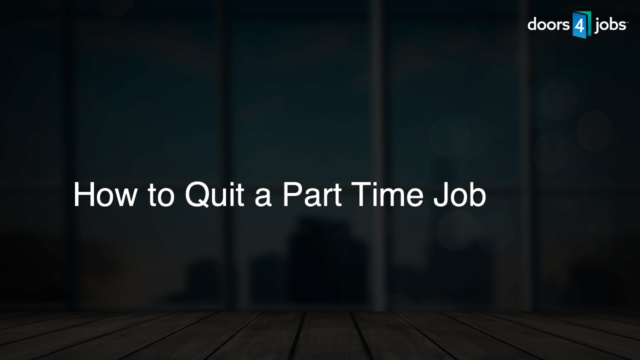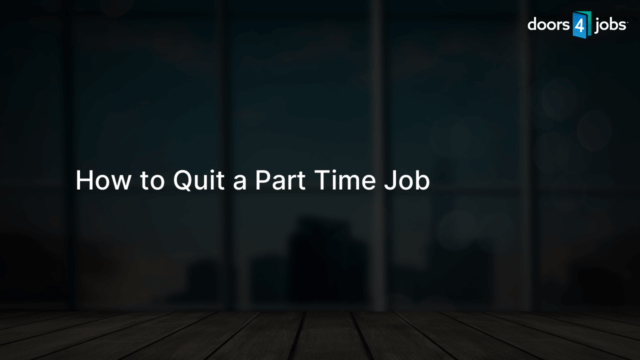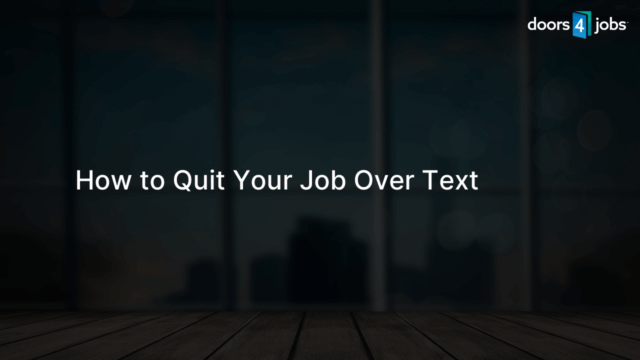If you find yourself needing to quit a job you just started, follow these steps: First, ensure that leaving is the right decision by evaluating your reasons and considering potential alternatives. Next, prepare for the conversation by checking your contract and any legal obligations you may have. Then, schedule a meeting with your supervisor to express gratitude and explain your reason for resigning. Provide a written resignation letter during the meeting and offer to assist with the transition process. Finally, maintain professional relationships during your notice period to leave a positive impression.
Evaluating Your Decision to Quit
Before you take any action, ensure that quitting is the best choice for your situation. Reflect on your reasons for leaving, such as a toxic work environment, inadequate compensation, or a better opportunity elsewhere. Weigh the pros and cons, consider potential alternatives, and consult with trusted friends or advisors.
Understanding Your Employment Contract
Review your employment contract to be aware of any legal obligations tied to your departure. This may include notice periods, non-compete clauses, or other restrictions. Knowing your rights and responsibilities will help you navigate the resignation process smoothly.
Scheduling a Meeting with Your Supervisor
Request a private meeting with your supervisor to discuss your decision to resign. Choose a time when both of you can have an uninterrupted conversation, and be prepared to calmly and professionally explain your reasons for leaving.
Showing Gratitude and Explaining Your Reasons
Start the conversation by expressing gratitude for the opportunity and mentioning any positive experiences you’ve had at the company. Be honest about your reasons for leaving, while maintaining a professional tone. Avoid pointing fingers or providing excessive detail, and focus on the aspects of your departure that affect your personal well-being or professional growth.
Submitting a Written Resignation Letter
Provide your supervisor with a formal, written resignation letter during the meeting. This letter should include your intention to resign, your last day of employment, and a brief explanation of your reasons for leaving. Keep the tone polite and professional, and be sure any necessary information is clearly laid out.
Offering Assistance During the Transition Period
To leave on good terms, offer to assist with the transition process. This may involve training a replacement, completing outstanding tasks, or collaborating on a transition plan. Showing a willingness to help demonstrates professionalism and consideration for your employer.
Maintaining Professional Relationships During the Notice Period
Throughout your notice period, continue to be respectful and complete work tasks to the best of your ability. Strive to leave a positive impression, as you may need a reference from your employer in the future. Additionally, staying professional helps maintain your reputation in the industry.
Preparing for Potential Repercussions
It’s essential to be aware of the potential repercussions of quitting a job you just started. Leaving too soon may be perceived as a lack of commitment, which could impact your relationships with coworkers or future employers. To mitigate this, emphasize your reasons for quitting and demonstrate your professionalism throughout the resignation and transition process.
Updating Your Resume and LinkedIn Profile
Once you’ve resigned, update your resume and LinkedIn profile accordingly. Consider if it’s beneficial to include this short-term position, or if it’s best to omit it, especially if your reasons for leaving were sensitive or personal. When updating your resume, focus on your relevant experience, skills, and accomplishments from your professional history.
Staying Connected with Colleagues
Despite leaving the position, maintain your connections and network with your former colleagues. Stay in touch by connecting on LinkedIn and other professional networking platforms. Foster positive working relationships even after your departure, as they can be valuable resources for future opportunities and references.
Reflecting on Your Experience
Take time to evaluate and reflect on your experience and the reasons you chose to quit the job. This will help you identify your goals, values, and priorities and make more informed decisions in your future job search. Understand what you can learn from this experience, and apply these insights to secure a better-suited position in the future.
Job Searching After Quitting
Initiate the job search process once you’ve decided to quit. Explore available opportunities, focusing on roles that align with your long-term career goals, skill set, and interests. When applying for new positions and having interviews, be prepared to address your reason for leaving the previous job, while maintaining a professional and honest approach.
FAQ Section
Below are some frequently asked questions and answers related to quitting a job you just started. These can provide additional clarity and guidance for those considering leaving a newly acquired position.
How do I explain leaving a job quickly to potential employers?
Be honest and concise when discussing your reasoning with potential employers. Focus on what you’ve learned from the experience and how it has influenced your career goals. It’s crucial to emphasize your dedication to finding a more suitable role and your commitment to your long-term career development.
Should I include the short-term job on my resume?
Consider if the short-term job adds value to your resume by showcasing relevant skills or experience. If it does, include it; if not, omit the position, especially if the reasons for leaving were sensitive or might reflect negatively on your professional profile.
What if my employer asks me to stay longer than my required notice period?
If your employer requests an extension beyond your required notice period, evaluate your personal and professional circumstances before making a decision. You are not obligated to stay, but agreeing to extend your notice period may leave a positive impression and help maintain professional relationships.
Can I quit a job without another offer lined up?
While it is generally advisable to secure another job before quitting your current one, there may be situations where resigning without a new job offer is necessary. Assess your financial stability, the job market, and your personal priorities before making this decision, and be prepared for a potential gap in employment.
How do I overcome the fear of quitting my job?
Overcoming the fear of quitting a job involves reflection, planning, and communication. Evaluate your decision, consider the potential consequences, and devise a strategy to resign professionally. Seek advice from trusted mentors, friends, or family to gain additional perspectives and support during the process.











